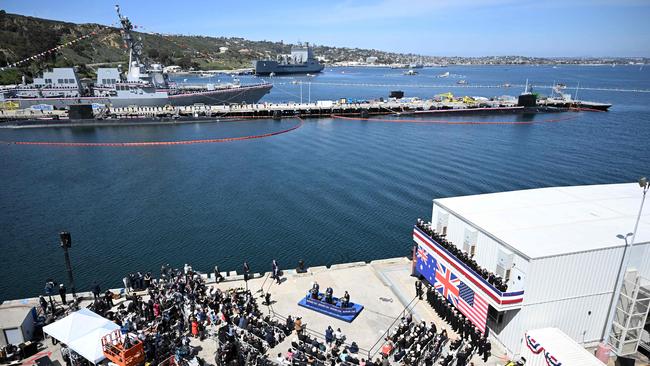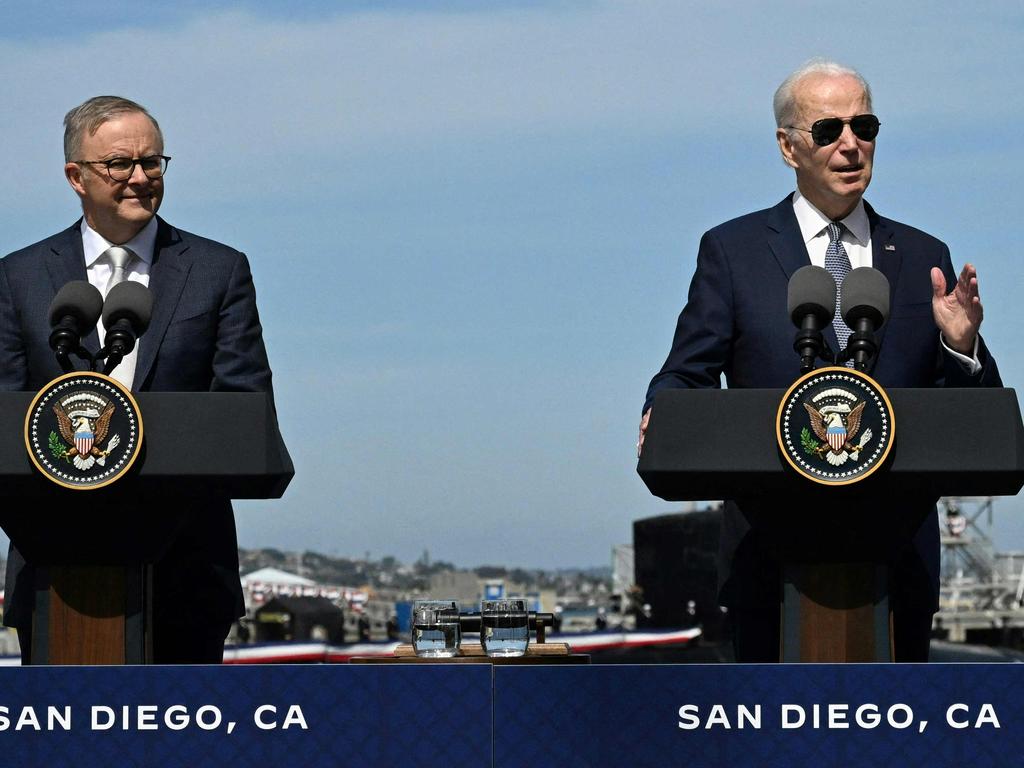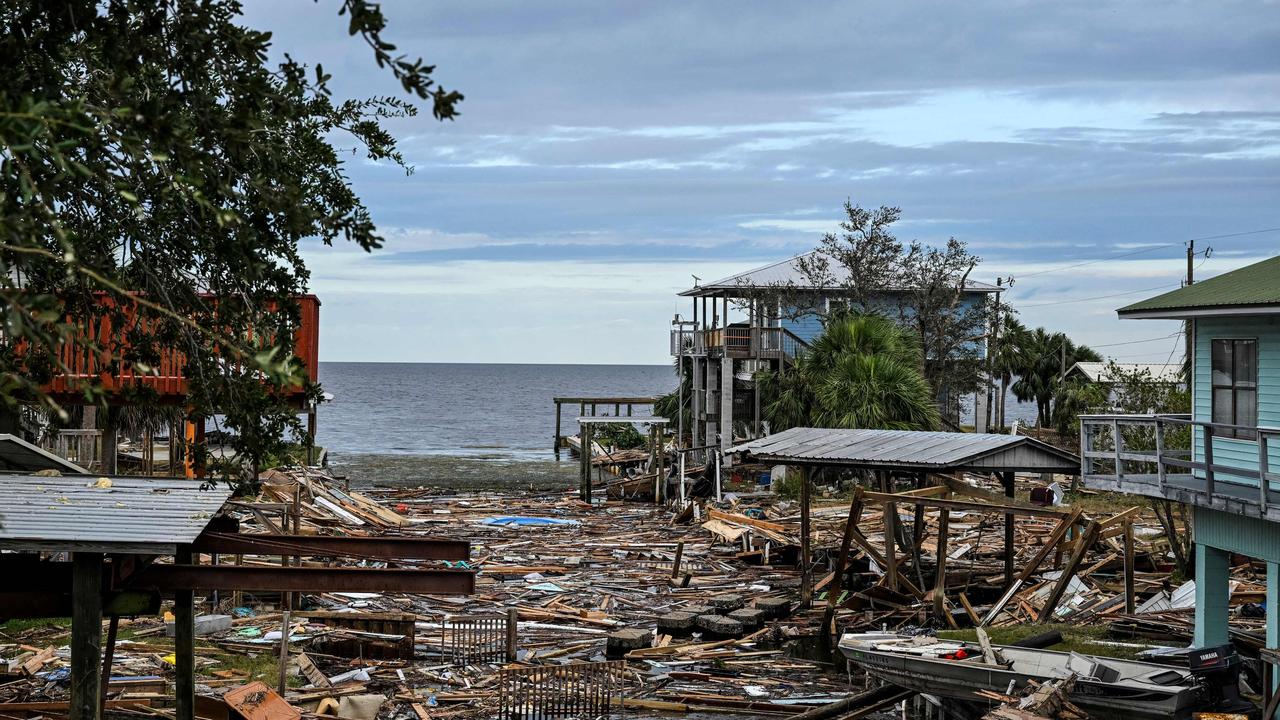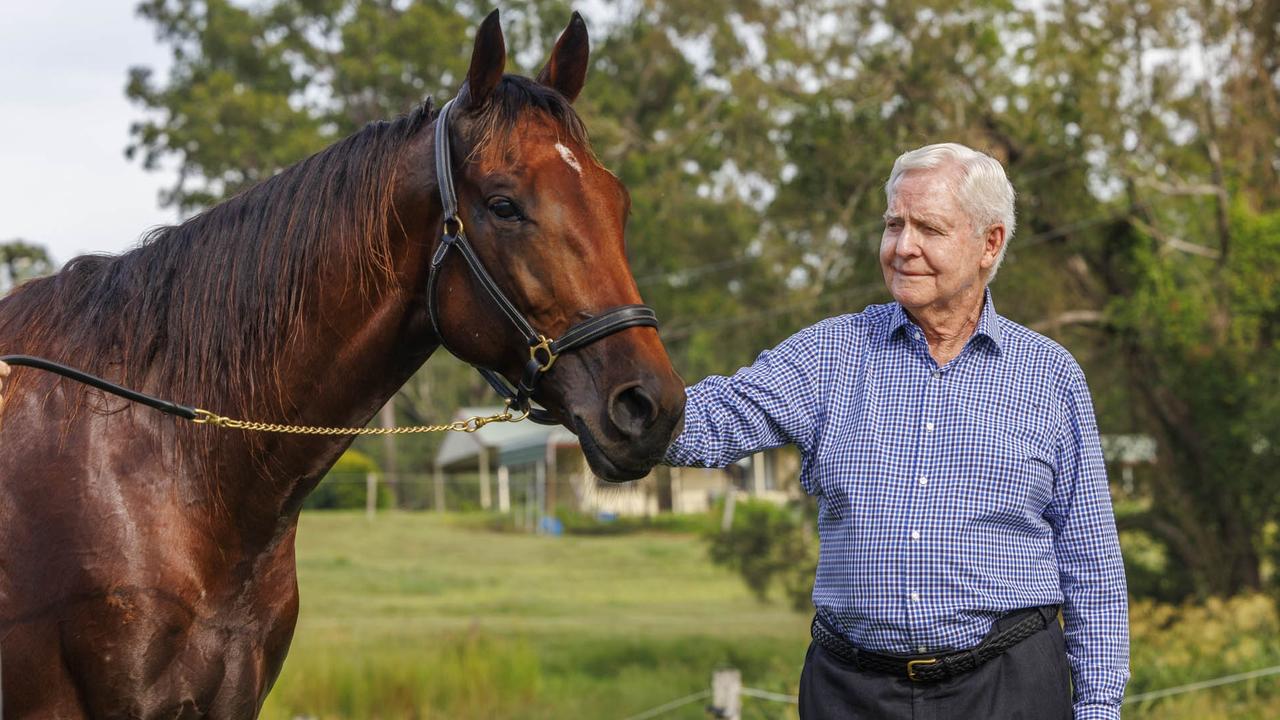Robert Gottliebsen
Big tech risks in Australia’s $368bn investment in nuclear submarines: Robert Gottliebsen


Australia needs to realise that there are considerable technology risks in our $268bn to $368bn investment in nuclear submarines.
Nuclear submarines have been pre-eminent in naval warfare for decades because they are almost impossible to detect. But new technology in counter weaponry threatens older submarines, and Australia needs to be on top of these developments.
With that qualification, I support the AUKUS strategy of Prime Minister Albanese, Defence Minister Marles and Foreign Affairs Minister Wong.
And what makes their work so much better for the nation is that it was started by former PM Scott Morrison and given extra momentum when Peter Dutton became defence minister and removed us from the disastrous French submarine mistake The nation is greatly strengthened when both parties work together.
But sadly, both the Coalition and the ALP in government have bad records in major decision-making. They do not spend enough time with small task forces to map out all the consequences of what is proposed, and in particular rarely look at future developments. Another ignored essential in major decision-making is bringing in top people from outside to thoroughly examine decisions to alert everyone to future hazards.
One of the reasons both parties continue to make big mistakes is that the standard of the public service has deteriorated over the last two decades. The reasons are another story.
The Coalition mistakes include robodebt, where a poor decision process did not pick up the fact that the Australian Taxation systems could not reliably provide the required information and there were hidden legal issues.
In the Joint Strike Fighter/F35 purchase decision, we turned our back on a tentative approaches from the US to embrace the superior F-22, choosing instead a yet to be designed aircraft. The JSF/F35 simply is now no match for rival regional aircraft. Like the JSF-F35, in the French submarine contract, politics replaced proper decision-making. First we went with the Japanese submarine. Then the German submarine was selected, but as the Germans were flying to Australia to accept the tender in a bizarre cabinet meeting, we switched to the French.
The ALP government has proven to be no better. Like robodebt, the government didn’t do a proper analysis of what was involved in putting a cap on superannuation and as a result discovered too late that industry funds did not have the systems to implement the cap. The quickly trumped-up remedy was badly thought out. Almost the same thing has happened with franking credits.
In industrial relations, the government has not done a thorough examination with all parties to determine the best way to implement what they are trying to do. A proper decision-making process was not undertaken, so a disaster is likely.
Sadly, the basic flaws in our decision-making process have not been corrected by a change in government. So it’s no surprise that in nuclear submarines we are in danger of making exactly the same mistakes. At this stage, we don’t know whether the government and its advisers have closely examined at the total nuclear submarine technology issues. But there are clear danger signs.
It seems we appointed a task force to examine the submarine issue, which was a good first step. But instead of 20 or 30 people, there were a vast number. The total may have reached the hundreds. A task force that goes much past 20 or 30 people becomes a bureaucratic mess where you follow the leader and opposing views are swamped. There is no evidence we went to external experts to double-check what was ahead and determine what the Chinese and others are doing.
Encouragingly, to discover what is ahead we don’t need top detectives – anti-nuclear submarine technology is being developed for America’s own anti-submarine weaponry.
Forbes magazine points out that no matter how slowly large nuclear submarines travel, they move a lot of water and so generate a wake.
On the surface, the wake is invisible to the human eye and conventional technology because it is lost in the random pattern of waves.
But sensors are being developed to detect those wakes.
The challenge is having a sensor with high enough resolution and sufficient data processing capacity to extract the faint signal from the mass of background noise and wave activity
The US navy’s non-traditional airborne anti-submarine warfare system seeks to do that just that by developing a new method of tracking submarines involving scanning the seas on aircraft flying as high as 60,000 feet and detecting telltale traces of underwater activity.
Leading the US technology development is the Raytheon group.
It seems the Chinese have been working on similar technology for years, and almost certainly are more advanced at detecting the minor wake produced by the current generation of nuclear submarines.
The answer is that modern nuclear submarines must be reshaped so that their wake becomes undetectable. It seems that the UK is actually further ahead in this process than the Americans. I am sure the Americans are fully aware of the new environment and will use their technology to help them design better shaped nuclear submarines. We have to be part of that movement.
But in buying older existing submarines, we need to have taken into account the new technology. A task force of 100 plus people is unlikely to have been able to assess the dangers of buying older submarines.
Both the ALP and the Coalition need to recognise that their current Australian decision-making process leads to horrendous errors, particularly in defence. We can’t afford a $368bn error, particularly as we still have to rectify other defence errors.




